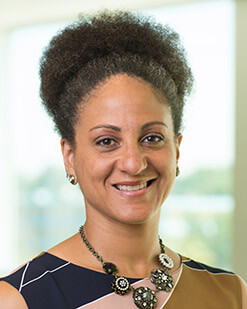Triple-Combination Therapy Helps Patients with Cystic Fibrosis
VX-445 added to approved dual therapy could help 90 percent of patients
DENVER, CO —
 Researchers at National Jewish Health and around the world reported today in the New England of Journal of Medicine that adding a third medication to an approved dual-medication therapy that addresses the fundamental molecular flaws in cystic fibrosis substantially improved lung function both in patients on currently approved dual therapy and in those who currently have no approved CFTR modulator therapy. Two small molecules, VX-445 and VX-659, were tested independently in combination with ivacaftor-tezacaftor (Symdeko). Institutions around the world participated in the trials, sponsored by Vertex Pharmaceuticals.
Researchers at National Jewish Health and around the world reported today in the New England of Journal of Medicine that adding a third medication to an approved dual-medication therapy that addresses the fundamental molecular flaws in cystic fibrosis substantially improved lung function both in patients on currently approved dual therapy and in those who currently have no approved CFTR modulator therapy. Two small molecules, VX-445 and VX-659, were tested independently in combination with ivacaftor-tezacaftor (Symdeko). Institutions around the world participated in the trials, sponsored by Vertex Pharmaceuticals.
National Jewish Health Associate Professor of Medicine Jennifer Taylor-Cousar, MD, MSCS, is senior author on the trial of VX-445-tezacaftor-ivacaftor, and co-author on the trial of VX-659-tezacaftor-ivacaftor. National Jewish Health operates the largest adult cystic fibrosis program in the United States. National Jewish Health patients participated in both trials.
“The results from these two studies represent some of the most exciting data generated in the history of cystic fibrosis treatment,” said Dr. Taylor-Cousar. “We may soon be able to improve the quality of life and survival of 90 percent of the people with cystic fibrosis.”
Cystic fibrosis results from a genetic mutation in the CFTR gene, which results in a faulty ion channel that prevents chloride and other ions from exiting cells in the lungs and other organs. With chloride unable to exit cells, thick mucus builds up in the lungs and gastrointestinal organs. The thick mucus provides a favorable environment for bacterial and other infections to develop. Patients suffer repeated infections of the lungs, which result in lung damage over time and eventually premature death.
In recent years, several new medications have been developed that directly impact the faulty CFTR ion channel. Both tezacaftor and lumacaftor correct defects in the ion channel that keep it from moving from the cell’s interior to its surface, where it functions. Ivacaftor helps to open the faulty ion channel on the cell surface so chloride and other ions can exit the cell. A combination of tezacaftor or lumacaftor and ivacaftor is standard therapy for people with cystic fibrosis who have CFTR mutations that respond to these medications.
However, the dual combination therapies are not approved for all people with cystic fibrosis who have the most common mutation in patients, del508. People with two copies of the del508 mutation get some benefit from the dual therapy combination. The combination therapy has not been approved for patients with one copy of del508 and one copy of another disease-causing mutation that results in no CFTR protein being made, because it provides little to no benefit to them in early clinical trials.
VX-445 and VX-659 are experimental medications that help the CFTR protein reach the cell surface. They have complementary mechanisms of action to those of existing medications.
The trial of the VX-445-tezacaftor-ivacaftor combination evaluated results for 119 patients with one or two copies of the del508 mutation. Four weeks of treatment with the VX-445-tezacaftor-ivacaftor therapy improved lung function in patients with two copies of del508 by 11 percent over their response to the tezacaftor-ivacaftor combination. Patients with one copy of del508 experienced a 13.8 percent improvement in lung function compared to placebo, as measured by the volume of air expelled in one second (FEV1). The trial of VX-659-tezacaftor-ivacaftor demonstrated similar results. The triple-combination therapies also improved results of sweat chloride concentrations, which measures how much chloride is moving through the ion channel. Scores also improved dramatically on a cystic fibrosis-specific quality-of-life test, demonstrating that people with cystic fibrosis feel better when taking triple combination therapy.
An accompanying commentary in the New England Journal of Medicine called the results “a major breakthrough in cystic fibrosis therapeutics.”
National Jewish Health is the leading respiratory hospital in the nation. Founded in 1899 as a nonprofit hospital, National Jewish Health today is the only facility in the world dedicated exclusively to groundbreaking medical research and treatment of children and adults with respiratory, cardiac, immune, and related disorders. Patients and families come to National Jewish Health from around the world to receive cutting-edge, comprehensive, coordinated care. To learn more, visit the media resources page.
Media Resources
We have many faculty members, from bench scientists to clinicians, who can speak on almost any aspect of respiratory, immune, cardiac and gastrointestinal disease as well as lung cancer and basic immunology.
Media Contacts
Our team is available to arrange interviews, discuss events and story ideas.
- Adam Dormuth
303.398.1002 office
970.222.5034 mobile
dormutha@njhealth.org - Jessica Berry
303.398.1082 office
303.807.9491 mobile
berryj@njhealth.org
